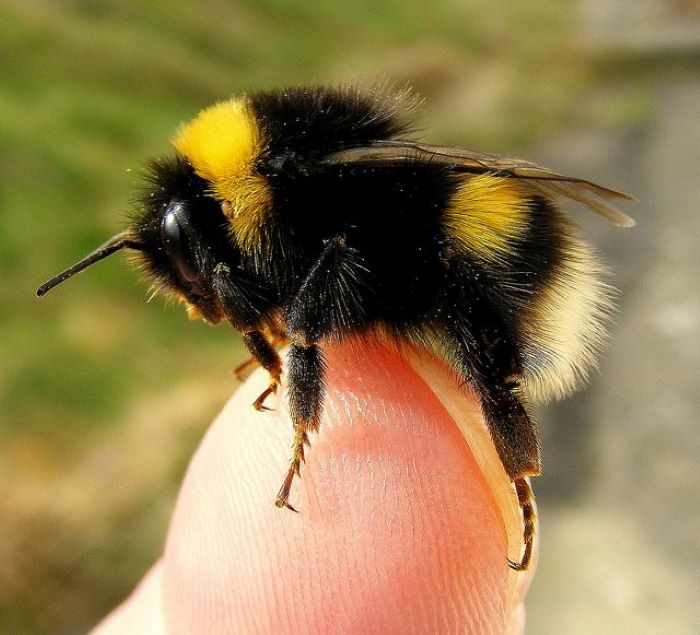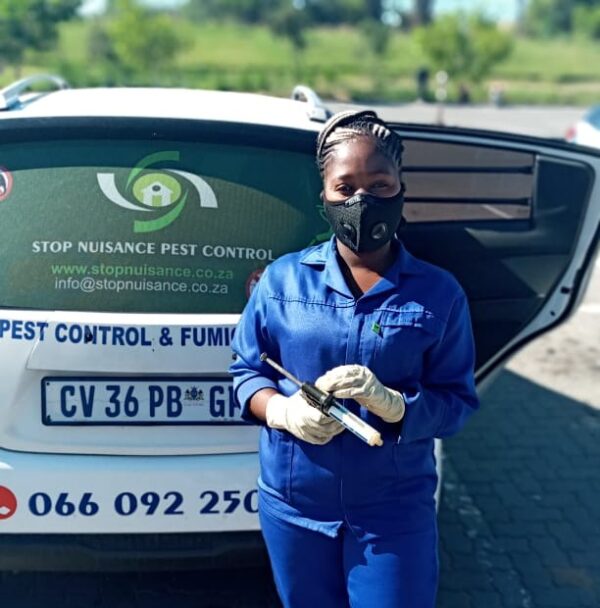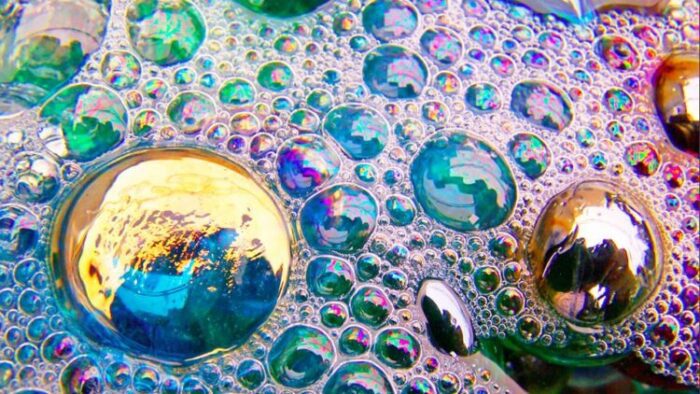Bees play a vital role in our ecosystem by pollinating plants and flowers. However, sometimes bees can become a nuisance if their hive is located too close to your home. You may be tempted to use soapy water to get rid of them, but does soapy water actually kill bees? Let’s take a closer look.
Table of Contents
What Happens When Bees Come in Contact With Soapy Water?

When bees land on a surface that has been sprayed with soapy water, the soap interferes with the bees’ breathing and their ability to fly. The soap breaks the surface tension of the water, causing the bees to sink into it. As they struggle, it becomes harder for them to move their wings and breathe.
Within a few minutes, bees that have come in contact with soapy water will die from asphyxiation or exhaustion from trying to escape. The soap also damages their exoskeleton and wings. The soap may even enter their breathing tubes and block their ability to take in oxygen if they are fully submerged.
Why Does Soapy Water Kill Bees?
There are a few reasons why soapy water is so lethal to bees:
Disrupts surface tension: Bees have small hairs on their body that help them float on top of water. When soap is added, it breaks the water’s surface tension, causing the bees to get weighed down by the water molecules and drown. The soap also sticks to their wings and body, making it impossible for them to fly or float.
Suffocation: Like previously mentioned, the soap interferes with the bee’s breathing tubes and ability to take in oxygen, essentially suffocating them to death. Their breathing holes become clogged with soap.
Hypothermia: Soapy water rapidly lowers a bee’s body temperature. Bees need to maintain a temperature between 92-93°F in order to fly and function properly. Exposure to soapy water cools their wings and muscles, preventing them from being able to move.
Damages exoskeleton: A bee’s outer shell or exoskeleton protects its inner organs and provides structural support. When this shell gets coated in soap, it cannot properly retain heat and moisture, causing the bee to dehydrate. The soap may also seep through the shell, disrupting internal processes.
As you can see, soapy water essentially immobilizes bees and creates a number of lethal issues that lead to their demise. The soap damages their protective outer barriers and cripples their ability to breathe, move and regulate temperature. Even brief exposure usually results in death.
What Kind of Soap Kills Bees Fastest?
All types of soap can kill bees relatively quickly. However, liquid dish soaps that have degreasing properties seem to be the deadliest. Dish soaps are formulated to cut through oil, grease and wax using active ingredients like sodium laureth sulfate.
These ingredients are exceptionally effective at penetrating the bees’ oily outer coat and destroying the hydrophobic layer that allows bees to float dry on top of water. Dish soaps also create copious amounts of suds that further hinder bee movement and block breathing.
On the other end of the spectrum, natural liquid castile soaps made from vegetable oils kill bees slower but still with lethal effect. While the mode of action is the same, castile soap generates less foam and the ingredients are generally less harsh. Still, it damages wings and restricts breathing enough to ultimately drown bees.
What About Insecticidal Soaps?
Insecticidal soaps containing potassium salts of fatty acids can kill bees just through contact alone without the bees needing to be submerged in soapy water. These special soaps dissolve the lipids and fats in the insect’s exterior, causing rapid dehydration and death within minutes.
Insecticidal soap sprays are designed to eliminate soft-bodied insects like aphids, mites and caterpillars on contact. However, they can also kill beneficial pollinators if sprayed directly. It’s best not to spray these soaps anywhere near flowering plants or bee habitats.
Safe Alternatives to Soapy Water for Bee Control
If you have an unwanted bee colony too close to your home, avoid using soapy water or insecticidal sprays to get rid of them. Not only are they inhumane, but you risk getting stung in the process.
Instead, try these gentle bee deterrents and removal methods:
- Bee smoker – using smoke causes bees to gorge on honey and peacefully leave the nest. A professional beekeeper can then safely relocate the colony.
- Sugar water spray – spraying a mix of sugar water encourages bees to move nests without harming them. The sugar water sticks to their wings, making it harder to fly back to the original spot.
- Vinegar spray – white vinegar repels bees with its scent but does not kill them. It’s safe to spray vinegar in areas where you don’t want bees congregating.
- Nest boxes – giving bees a designated nesting box away from your home provides them an attractive alternative nesting site.
- Call a beekeeper – reaching out to a local beekeeper to have them remove and rehome bees is the most sustainable option. This ensures the colony’s survival.
Bees are integral to our food system and biodiversity, so we should make an effort to find humane ways to deter them rather than resort to killing them outright. Avoid using soap, insecticidal sprays, or other harsh chemicals. With some clever tactics, you can keep bees safely away from your living space without doing any harm. I sincerely hope you find this “Does Soapy Water Kill Bees?” article helpful.
🔮 More From Pestifier

With over 5+ years of experience in pest control and a PhD in Entomology, our author brings a blend of scientific knowledge and practical expertise to Pestifier.com. Passionate about creating pest-free environments, they provide effective tips and strategies for managing and preventing pest infestations. Connect on Facebook for the latest updates and insights.

